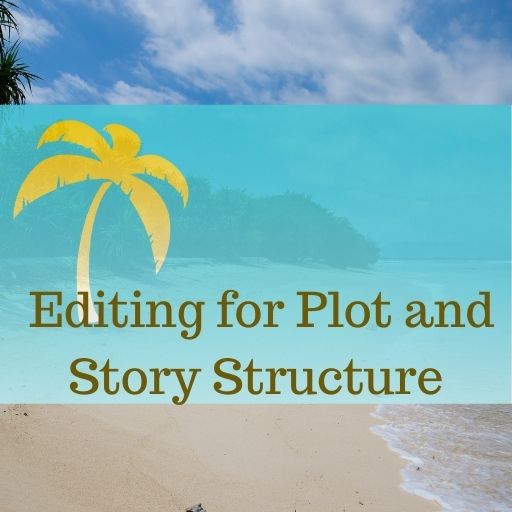Plot Twist!
The plot twist editorial query
From time to time, world events occur that make fiction editors look at each other and say, “We can never again tell our authors their plot events are implausible!”
And I smile along with everyone else. But of course it’s not true. “It really happened” has never been a measure of whether a particular event is plausible in a novel.
Even if an author is basing a novel on true-life events, readers still expect to see that plot events follow the laws of cause-and-effect, that significant plot twists are foreshadowed and don’t just drop out of nowhere, and that characters have goals that drive plot events.
It doesn’t matter if at the eleventh hour the author bought a winning lottery ticket and saved their house from foreclosure. Readers aren’t going to buy that happening in a novel – and they’re not going to consider it a satisfactory resolution to a novel.

A plot event has to seem true, as if it could happen, given the story world, the characters, and the theme.
There is life and then there is story. They are two different things. We want story to reflect or illuminate life in some way but story does not and should not imitate life, or we would all wander off by page thirty to find something good to read.
So, rest assured: no matter what happens in the world, you haven’t written your last editorial query suggesting the author rethink the plausibilty of a plot event!
Other Helpful Content
The Fine Art of Copyediting Fiction
When copyediting fiction, it’s common to run up against issues that pit author preference against standard editing approaches. For example, in a story I wrote some years ago, the main character’s neighbor is referred to as “3-B” as that is her apartment number and the MC doesn’t know her name. Fine. She can be referred…
Let the manuscript teach you how to edit it
One of the lessons I’ve learned over many years of editing is that you have to let the manuscript teach you how to edit it. Every manuscript is different and every manuscript needs a different touch. Even when an author does something I’ve seen many times before, I have to edit for that particular manuscript,…
Helping Authors Strengthen Story Settings
The setting of a novel consists of multiple elements, big and small, that nest inside each other like those little Russian dolls. We might show this hierarchy of settings like so: If you think about it, the micro setting of “the living room of 601 San Mateo Road Apartment 16” implies the existence of all…
Join the Club!
New to story editing? Begin at the beginning.



